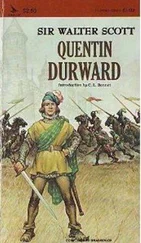Walter Scott - Letters on Demonology and Witchcraft
Здесь есть возможность читать онлайн «Walter Scott - Letters on Demonology and Witchcraft» весь текст электронной книги совершенно бесплатно (целиком полную версию без сокращений). В некоторых случаях можно слушать аудио, скачать через торрент в формате fb2 и присутствует краткое содержание. Жанр: История, на английском языке. Описание произведения, (предисловие) а так же отзывы посетителей доступны на портале библиотеки ЛибКат.
- Название:Letters on Demonology and Witchcraft
- Автор:
- Жанр:
- Год:неизвестен
- ISBN:нет данных
- Рейтинг книги:4 / 5. Голосов: 1
-
Избранное:Добавить в избранное
- Отзывы:
-
Ваша оценка:
- 80
- 1
- 2
- 3
- 4
- 5
Letters on Demonology and Witchcraft: краткое содержание, описание и аннотация
Предлагаем к чтению аннотацию, описание, краткое содержание или предисловие (зависит от того, что написал сам автор книги «Letters on Demonology and Witchcraft»). Если вы не нашли необходимую информацию о книге — напишите в комментариях, мы постараемся отыскать её.
Letters on Demonology and Witchcraft — читать онлайн бесплатно полную книгу (весь текст) целиком
Ниже представлен текст книги, разбитый по страницам. Система сохранения места последней прочитанной страницы, позволяет с удобством читать онлайн бесплатно книгу «Letters on Demonology and Witchcraft», без необходимости каждый раз заново искать на чём Вы остановились. Поставьте закладку, и сможете в любой момент перейти на страницу, на которой закончили чтение.
Интервал:
Закладка:
From this and other instances it appears that the predominance of the superstition of witchcraft, and the proneness to persecute those accused of such practices in Scotland, were increased by the too great readiness of subordinate judges to interfere in matters which were, in fact, beyond their jurisdiction. The Supreme Court of Justiciary was that in which the cause properly and exclusively ought to have been tried. But, in practice, each inferior judge in the country, the pettiest bailie in the most trifling burgh, the smallest and most ignorant baron of a rude territory, took it on him to arrest, imprison, and examine, in which examinations, as we have already seen, the accused suffered the grossest injustice. The copies of these examinations, made up of extorted confessions, or the evidence of inhabile witnesses, were all that were transmitted to the Privy Council, who were to direct the future mode of procedure. Thus no creature was secure against the malice or folly of some defamatory accusation, if there was a timid or superstitious judge, though of the meanest denomination, to be found within the district.
But, secondly, it was the course of the Privy Council to appoint commissions of the gentlemen of the country, and particularly of the clergymen, though not likely, from their education, to be freed from general prejudice, and peculiarly liable to be affected by the clamour of the neighbourhood againt the delinquent. Now, as it is well known that such a commission could not be granted in a case of murder in the county where the crime was charged, there seems no good reason why the trial of witches, so liable to excite the passions, should not have been uniformly tried by a court whose rank and condition secured them from the suspicion of partiality. But our ancestors arranged it otherwise, and it was the consequence that such commissioners very seldom, by acquitting the persons brought before them, lost an opportunity of destroying a witch.
Neither must it be forgotten that the proof led in support of the prosecution was of a kind very unusual in jurisprudence. The lawyers admitted as evidence what they called damnum minatum, et malum secutum —some mischief, that is to say, following close upon a threat, or wish of revenge, uttered by the supposed witch, which, though it might be attributed to the most natural course of events, was supposed necessarily to be in consequence of the menaces of the accused.
Sometimes this vague species of evidence was still more loosely adduced, and allegations of danger threatened and mischief ensuing were admitted, though the menaces had not come from the accused party herself. On 10th June, 1661, as John Stewart, one of a party of stout burghers of Dalkeith appointed to guard an old woman called Christian Wilson from that town to Niddrie, was cleaning his gun, he was slyly questioned by Janet Cocke, another confessing witch, who probably saw his courage was not entirely constant, "What would you think if the devil raise a whirlwind, and take her from you on the road to-morrow?" Sure enough, on their journey to Niddrie the party actually were assailed by a sudden gust of wind (not a very uncommon event in that climate), which scarce permitted the valiant guard to keep their feet, while the miserable prisoner was blown into a pool of water, and with difficulty raised again. There is some ground to hope that this extraordinary evidence was not admitted upon the trial.
There is a story told of an old wizard, whose real name was Alexander Hunter, though he was more generally known by the nickname of Hatteraick, which it had pleased the devil to confer upon him. The man had for some time adopted the credit of being a conjurer, and curing the diseases of man and beast by spells and charms. One summer's day, on a green hill-side, the devil appeared to him in shape of a grave "Mediciner," addressing him thus roundly, "Sandie, you have too long followed my trade without acknowledging me for a master. You must now enlist with me and become my servant, and I will teach you your trade better." Hatteraick consented to the proposal, and we shall let the Rev. Mr. George Sinclair tell the rest of the tale.
"After this he grew very famous through the country for his charming and curing of diseases in men and beasts, and turned a vagrant fellow like a jockie, [73] [73] Or Scottish wandering beggar.
gaining meal, and flesh, and money by his charms, such was the ignorance of many at that time. Whatever house he came to none durst refuse Hatteraick an alms, rather for his ill than his good. One day he came to the yait (gate) of Samuelston, when some friends after dinner were going to horse. A young gentleman, brother to the lady, seeing him, switcht him about the ears, saying—'You warlock carle, what have you to do here?' Whereupon the fellow goes away grumbling, and was overheard to say, 'You shall dear buy this ere it be long.' This was damnum minatum . The young gentleman conveyed his friends a far way off, and came home that way again, where he supped. After supper, taking his horse and crossing Tyne water to go home, he rides through a shady piece of a haugh, commonly called Allers, and the evening being somewhat dark, he met with some persons there that begat a dreadful consternation in him, which for the most part he would never reveal. This was malum secutum . When he came home the servants observed terror and fear in his countenance. The next day he became distracted, and was bound for several days. His sister, the Lady Samuelston, hearing of it, was heard say, 'Surely that knave Hatteraick is the cause of his trouble; call for him in all haste.' When he had come to her, 'Sandie,' says she, 'what is this you have done to my brother William?' 'I told him,' says he, 'I should make him repent of his striking me at the yait lately.' She, giving the rogue fair words, and promising him his pockful of meal, with beef and cheese, persuaded the fellow to cure him again. He undertook the business. 'But I must first,' says he, 'have one of his sarks' (shirts), which was soon gotten. What pranks he played with it cannot be known, but within a short while the gentleman recovered his health. When Hatteraick came to receive his wages he told the lady, 'Your brother William shall quickly go off the country, but shall never return,' She, knowing the fellow's prophecies to hold true, caused the brother to make a disposition to her of all his patrimony, to the defrauding of his younger brother, George. After that this warlock had abused the country for a long time, he was at last apprehended at Dunbar, and brought into Edinburgh, and burnt upon the Castlehill." [74] [74] Sinclair's "Satan's Invisible World Discovered," p. 98.
Now, if Hatteraick was really put to death on such evidence, it is worth while to consider what was its real amount. A hot-tempered swaggering young gentleman horsewhips a beggar of ill fame for loitering about the gate of his sister's house. The beggar grumbles, as any man would. The young man, riding in the night, and probably in liquor, through a dark shady place, is frightened by, he would not, and probably could not, tell what, and has a fever fit. His sister employs the wizard to take off the spell according to his profession; and here is damnum minatum, et malum secutum , and all legal cause for burning a man to ashes! The vagrant Hatteraick probably knew something of the wild young man which might soon oblige him to leave the country; and the selfish Lady Samuelston, learning the probability of his departure, committed a fraud which ought to have rendered her evidence inadmissible.
Besides these particular disadvantages, to which the parties accused of this crime in Scotland were necessarily exposed, both in relation to the judicature by which they were tried and the evidence upon which they were convicted, their situation was rendered intolerable by the detestation in which they were held by all ranks. The gentry hated them because the diseases and death of their relations and children were often imputed to them; the grossly superstitious vulgar abhorred them with still more perfect dread and loathing. And amongst those natural feelings, others of a less pardonable description found means to shelter themselves. In one case, we are informed by Mackenzie, a poor girl was to die for witchcraft, of whom the real crime was that she had attracted too great a share, in the lady's opinion, of the attention of the laird.
Читать дальшеИнтервал:
Закладка:
Похожие книги на «Letters on Demonology and Witchcraft»
Представляем Вашему вниманию похожие книги на «Letters on Demonology and Witchcraft» списком для выбора. Мы отобрали схожую по названию и смыслу литературу в надежде предоставить читателям больше вариантов отыскать новые, интересные, ещё непрочитанные произведения.
Обсуждение, отзывы о книге «Letters on Demonology and Witchcraft» и просто собственные мнения читателей. Оставьте ваши комментарии, напишите, что Вы думаете о произведении, его смысле или главных героях. Укажите что конкретно понравилось, а что нет, и почему Вы так считаете.









